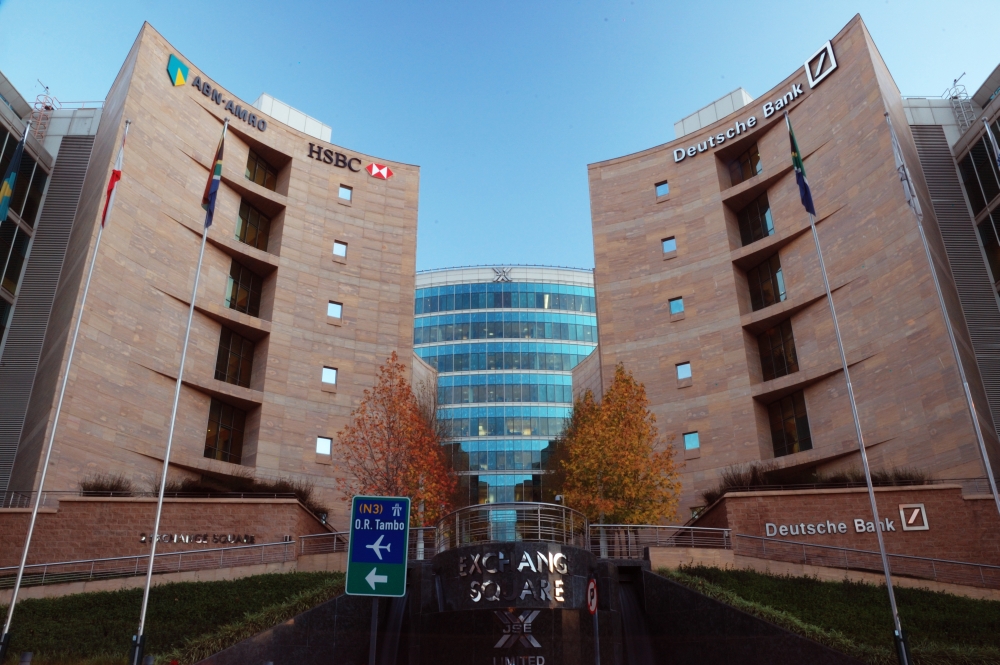
Trade Opportunities
- As the largest industrialised economy in Africa, South Africa is a major industrial power and world leader in the production and export of minerals, exhibiting convincing manufacturing strengths. Economic and social policies are ensuring the international reintegration of the economy and the creation of an environment for sustained export growth and healthy net capital inflows. South Africa is numbered in the top seven best-performing economies in the world and is placed third in terms of industrial production growth.
- Since the dawn of democracy, South Africa's gross domestic product has been growing at almost 3% per annum. However, sustained growth levels of above 5% is needed to ensure that the country can deliver on set mandates as a developmental state and also effectively address issues of unemployment, poverty and inequality, which do have socio-economic implications. A recessionary and difficult economic environment has made it difficult to achieve continuous economic expansions and the ongoing COVID-19 pandemic has made matters even more difficult. Nevertheless, there is believe in successfully turning the South African economy around, with the effective implementation of strategic interventions as outlined in the Economic Recovery and Reconstruction Plan, and in the KZN Economic Recovery and Transformation Plan. The outlined measures will ensure a path to stable recovery and above average performance.
- Key reasons behind this above-average performance are the increasing competitiveness of South African industry and an improvement in the domestic demand for goods and services. Export diversification is also a major factor that has contributed to progress, with manufacturing - a dominant and robust sector in this diversified economy - expected to retain its strength. Other strong sectors include finance and business services, commerce, mining and agriculture, while the tourism industry and its associated conferencing capabilities are playing an increasingly important role in development of entrepreneurial activities. There is additionally a superior and well-developed transportation and communications infrastructure, which have added impetus for more inward foreign direct investment.
Doing Business in SA
Banking and Financial Markets
 South Africa's highly competitive banking and finance industry is as technologically sophisticated as any
in the world, with the high-tech first-world service sector able to accommodate the most demanding needs of business, shipping agencies and foreign investors. The country's bankers, financial advisers, lawyers, tax consultants and experienced chartered accountants are able to advise foreign banks on legal issues and guide them through regulatory requirements with ongoing auditing services.
South Africa's highly competitive banking and finance industry is as technologically sophisticated as any
in the world, with the high-tech first-world service sector able to accommodate the most demanding needs of business, shipping agencies and foreign investors. The country's bankers, financial advisers, lawyers, tax consultants and experienced chartered accountants are able to advise foreign banks on legal issues and guide them through regulatory requirements with ongoing auditing services.
- The South African Reserve Bank oversees the banking services industry, while the Financial Services Board governs the non-banking financial services industry. South Africa's principle financial service markets comprise the JSE Securities Exchange, the SA Futures Exchange, and the Bond Exchange of South Africa. Once approval is obtained for foreign loans, commercial banks also monitor and report on receipt and usage of loan funds. The well-established Johannesburg Stock Exchange (JSE) is ranked among the largest in the world, providing opportunities for private investment in large South African companies, with volumes and foreign purchases having increased dramatically. It also offers opportunities to smaller, newer companies to seek investors through the Development Capital Market as well as a Traded Options Market for dealings in financial futures.
- The financial market sees several established banking institutions, with four major groups controlling the bulk of the total banking assets. Flexible working relationships exist between local and foreign banks in this private enterprise system, and associations and alliances have continued to grow, with an increasing number of foreign banks in operation through fully active representative offices. Ideally located to service both European and southern African clients comprehensively, financial institutions are able to offer a full range of banking activities, including trade finance, foreign exchange trading, offshore banking and trust management. Commercial banks help exporters in securing payments, while certain major financial institutions have international trade divisions offering more specialised services. The aim of small business units lies in assisting entrepreneurs, with innovative development initiatives offered.
THE CONCISE ECONOMICS OF BANKING
- A bank’s loan portfolio is its primary source of income. Banks will charge fees, commissions and margins on loans. Fees are payments made upfront or on a regular basis by the client for services the bank has agreed to provide. The fees and commissions may be administrative fees, commitment or underwriting fees (promises to lend), custody fees (safe keeping), fees for domestic or international transfers, and selling commissions.
 Margins are different. Margins are a percentage over and above a certain
reference level of interest. The reference level can be set by the bank itself
as its own cost of funds or can be an observable rate in the market such as
LIBOR – the London Interbank Offered Rate or JIBAR – the Johannesburg Interbank
Agreed Rate. LIBOR is the rate at which prime banks can borrow from other prime
banks for a fixed period of time – the benchmark interest rate at which major
global banks lend to one another. An equivalent rate is EURIBOR for the Eurozone
or HIBOR for Hong Kong. Most major financial centres have a similar concept Any
source of income is the interest generated by making short term loans to other
banks. Most unallocated funds at the end of a trading day, sometimes referred to
as a float, are placed overnight in the interbank market; and the trading
activity of a bank provides a further source of income.
Margins are different. Margins are a percentage over and above a certain
reference level of interest. The reference level can be set by the bank itself
as its own cost of funds or can be an observable rate in the market such as
LIBOR – the London Interbank Offered Rate or JIBAR – the Johannesburg Interbank
Agreed Rate. LIBOR is the rate at which prime banks can borrow from other prime
banks for a fixed period of time – the benchmark interest rate at which major
global banks lend to one another. An equivalent rate is EURIBOR for the Eurozone
or HIBOR for Hong Kong. Most major financial centres have a similar concept Any
source of income is the interest generated by making short term loans to other
banks. Most unallocated funds at the end of a trading day, sometimes referred to
as a float, are placed overnight in the interbank market; and the trading
activity of a bank provides a further source of income. - Banks capitalise on the classic model of banking, also known as the intermediated model, whereby depositors lend to banks which in turn lend to borrowers. Banks use their balance sheet to support business. For every loan they grant, they must have a certain percentage of equity capital so as to protect depositors against possible loan losses. Transactions that do not involve lending will require a lot less equity capital, if any at all, and therefore will allow banks to enhance their return on equity. Banks do also provide underwriting, corporate finance and asset management services through which they generate fees or income.
THE MARKETS
- Market participants utilise different markets according to their varying needs. A small local import company may simply need to purchase foreign currency immediately to pay its foreign supplier, while a multinational mining conglomerate may need to raise and then repay over many years, large sums of money to fund the development of a new mining project. Over time, numerous markets have evolved to service and manage these varying requirements, as well as providing a platform for speculators, who are drawn to the opportunities that the fluctuating market values provide. These markets differ in the actual financial instruments traded, or they may vary according to tenor and counterparty.
- Examples of financial markets include:
- Foreign Exchange (FX or FOREX) Market
- Equity (Share or Stock) Market
- Commodity Market
- Short-term (Money) Market Vs Long-Term Debt (Capital) Market
- Spot (Cash) Market Vs Derivative Market
- Over-The-Counter (OTC) Vs Exchange-Traded Market
- Primary Vs Secondary Market
Starting a Business - Overview
Requirements for Starting a New Business
| Foreign investors starting up new businesses or expanding existing business operations in South Africa require business permits. |
| A feasibility study to be presented in the form of a business plan; |
| Capital investment of R2.5 million. This may be waivered through the Department of Trade and Industry or provincial investment agencies, such as Trade & Investment KwaZulu-Natal; |
| A letter from a South African-registered chartered accountant verifying the investment amount; |
| An undertaking to employ at least five South African citizens or residents; and |
| Registration with the South African Revenue Services – www.sars.gov.za |
Permits for Foreign Employees
- The movement of people into South Africa and KwaZulu-Natal is controlled by the country's Immigration Amendment Act (No. 19 of 2004). In terms of this Act, foreigners require work permits to work in the country. If, however, their skills are in high demand at the time of their application, they may apply for Quota Work Permits or Exceptional Skills Work Permits, which quickens the process of being employed in South Africa.
- The Intra-company Transfer Work Permit allows multi-national companies to deploy employees from other countries to work in their South African offices for a period of four years.
Foreign Exchange
- There are no restrictions on foreign companies intending to invest in share capital. Administration in terms of portfolio investment is undertaken through the South African Reserve Bank. There are also no restrictions on the removal or repatriation of investment income or capital gains by non-residents.
- All loans to South African residents from outside the common monetary area require prior exchange control approval.
- Royalties, licence and patent fees for non-residents, where non-local manufacturing is involved, must be approved by the South African Reserve Bank.
- The Companies and Intellectual Property Commission (CIPC) , a unit of the Department of Trade and Industry (DTI) (www.thedti.gov.za), approves all manufacturing patents.
- For more information, log onto www.reservebank.co.za
Registering a Business
- Business registrations are undertaken by CIPC. The following business types may be formed by foreign investors:
| Company (Proprietary Limited); |
| Close Corporation (CC); |
| Partnership; |
| Sole Trader; |
| Joint Venture; |
| Local branch of a foreign company; and |
| Business Trust. |
Main functions of CIPC:
| Registration of Companies, Co-operatives and Intellectual Property Rights (trademarks, patents, designs and copyright) and maintenance thereof |
| Disclosure of Information on its business registers |
| Promotion of education and awareness of Company and Intellectual Property Law |
| Promotion of compliance with relevant legislation |
| Efficient and effective enforcement of relevant legislation |
| Monitoring compliance with and contraventions of financial reporting standards, and making recommendations thereto to Financial Reporting Standards Council (FRSC) |
| Licensing of Business rescue practitioners |
| Report, research and advise Minister on matters of national policy relating to company and intellectual property law |
| Further details on the institutional arrangements and information on registering each of these business types may be obtained from CIPC. |
Links:
- Call Centre: 086 100 2472 (CIPC)
- International Tel: +27 12 394 9973
- Fax Number: 086 517 7224
- International Fax: +27 12 394 1015
- Email: info@cipc.co.za
- Financials: financialstatements@cipc.co.za
- Docex: 256 Pretoria
- CIPC Companies and Intellectual Property Commission (CIPC) www.cipc.co.za
- SARS South African Revenue Services www.sars.gov.za
- SABS South African Bureau of Standards www.sabs.co.za
- CSIR Council for Scientific and Industrial Research www.csir.co.za